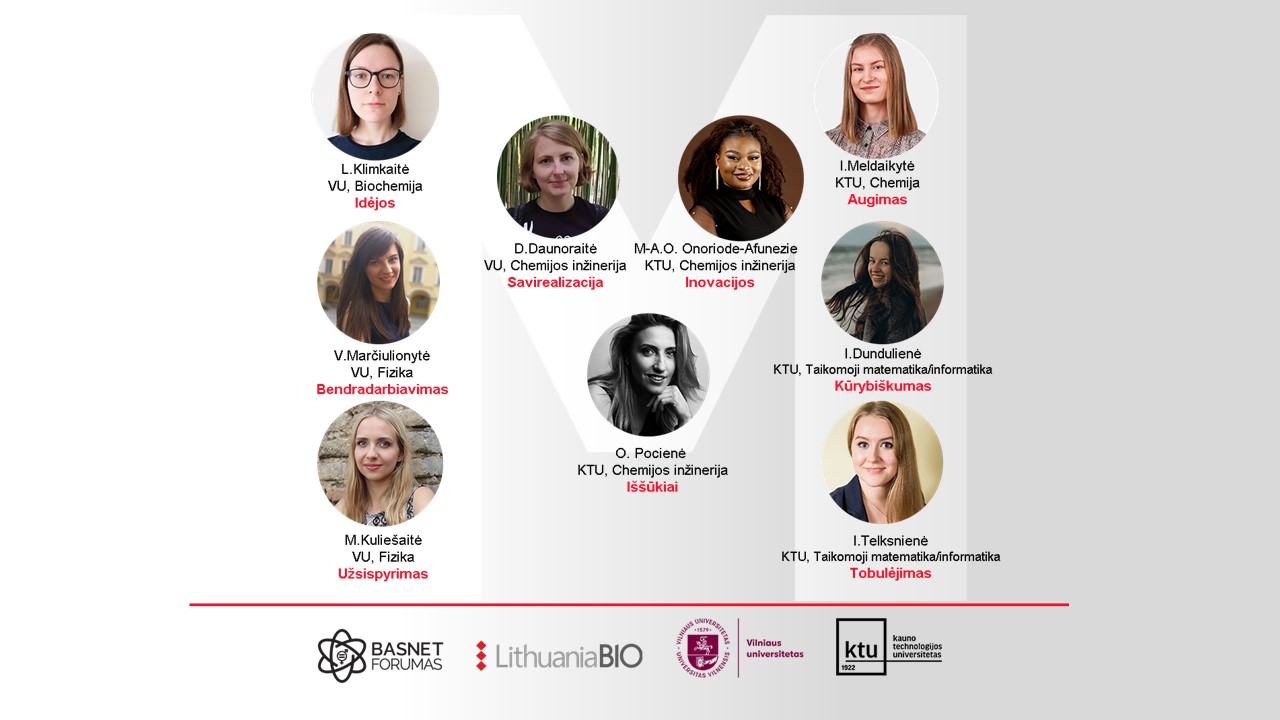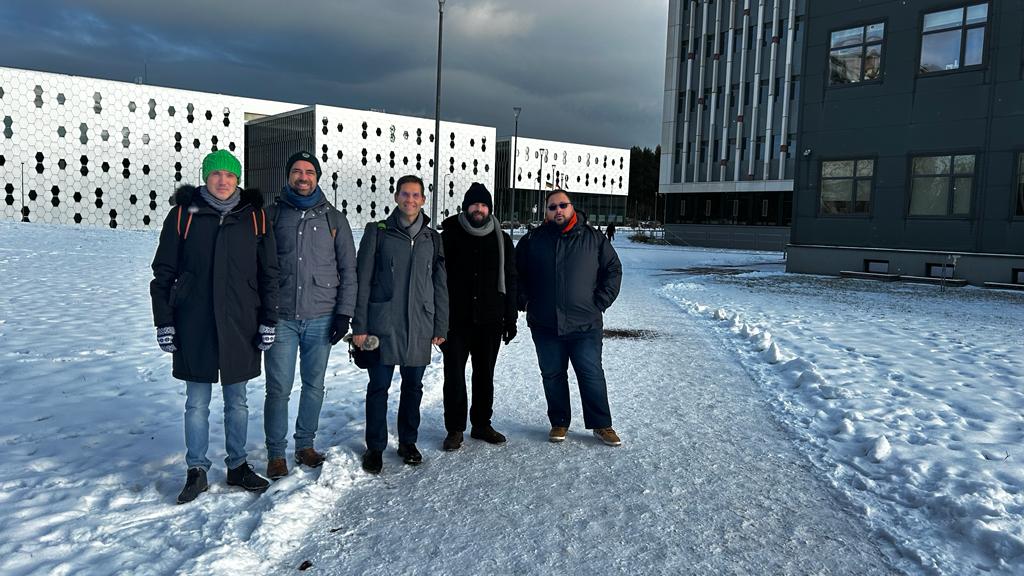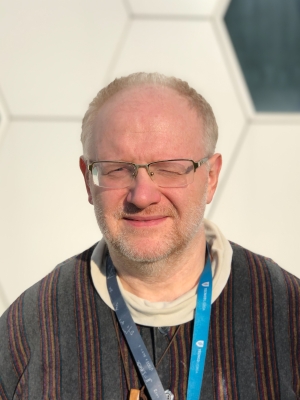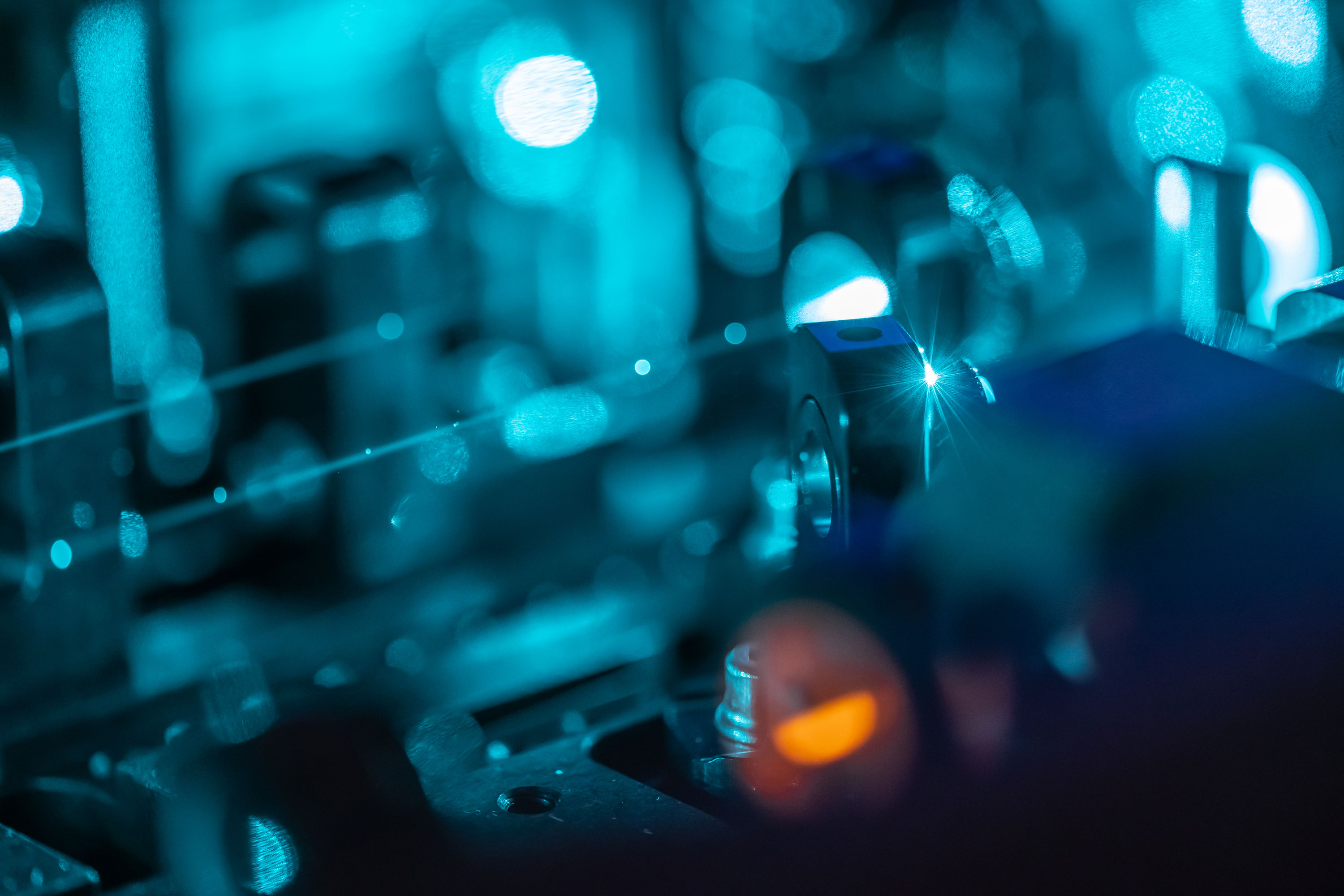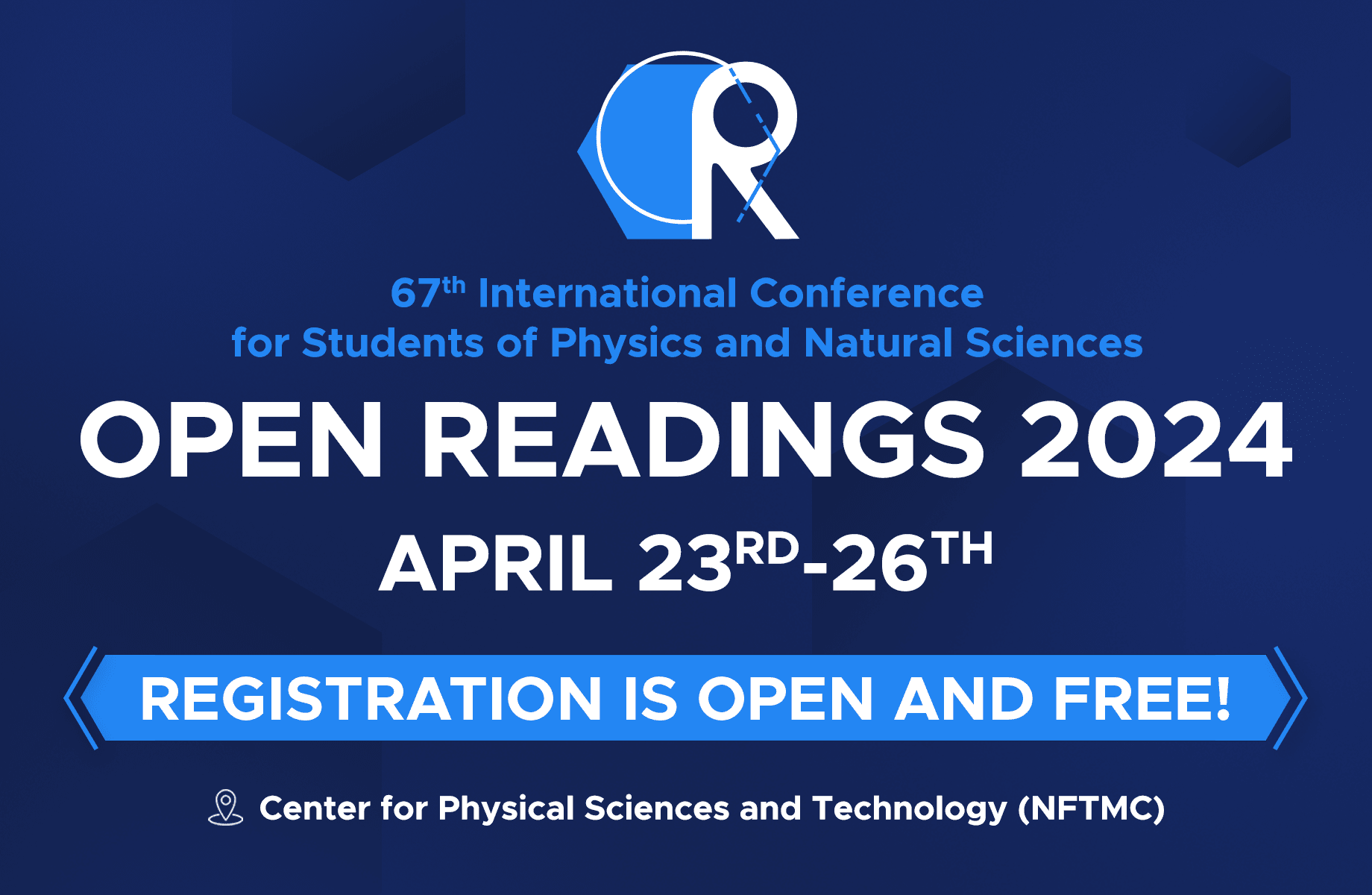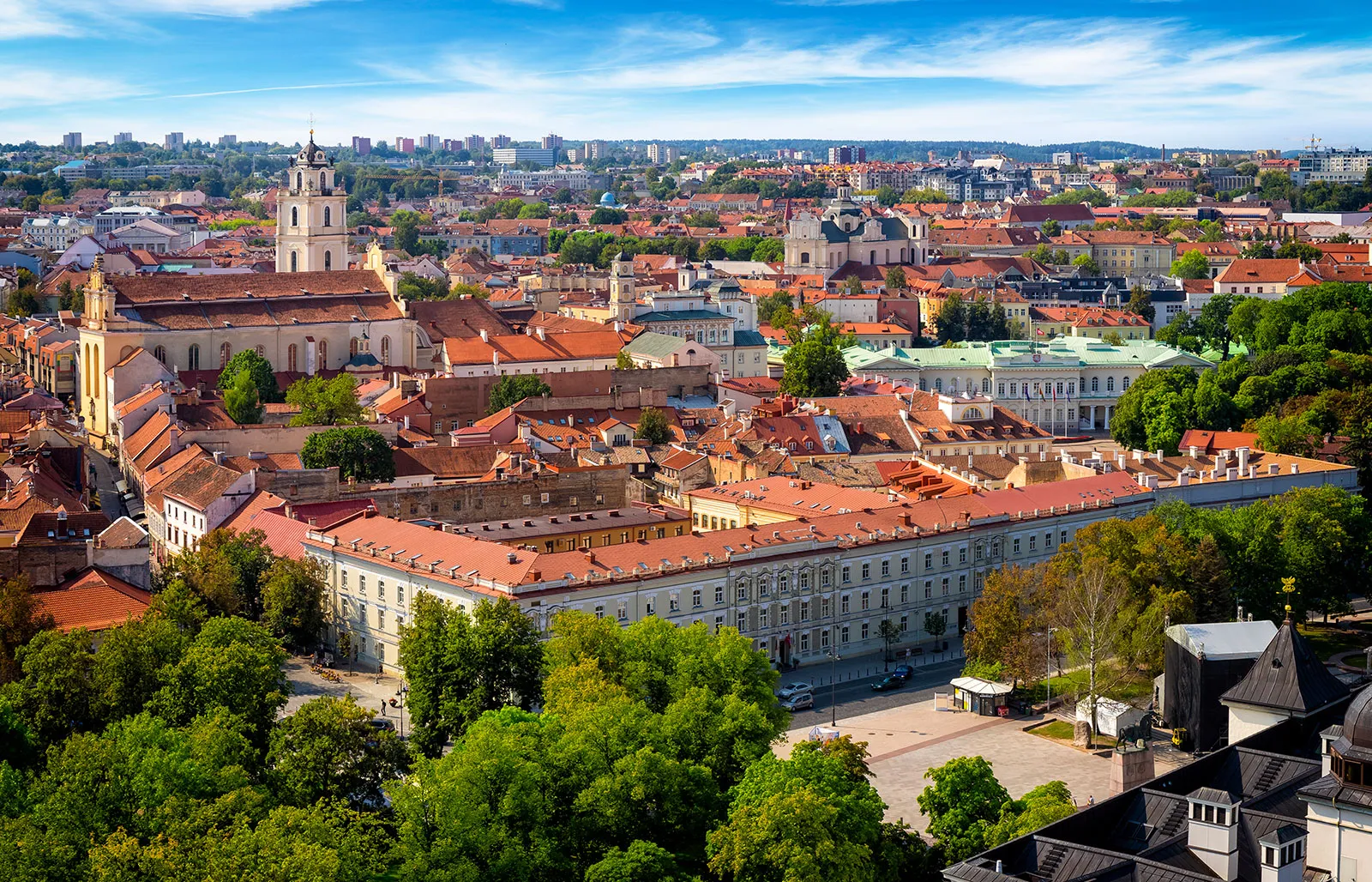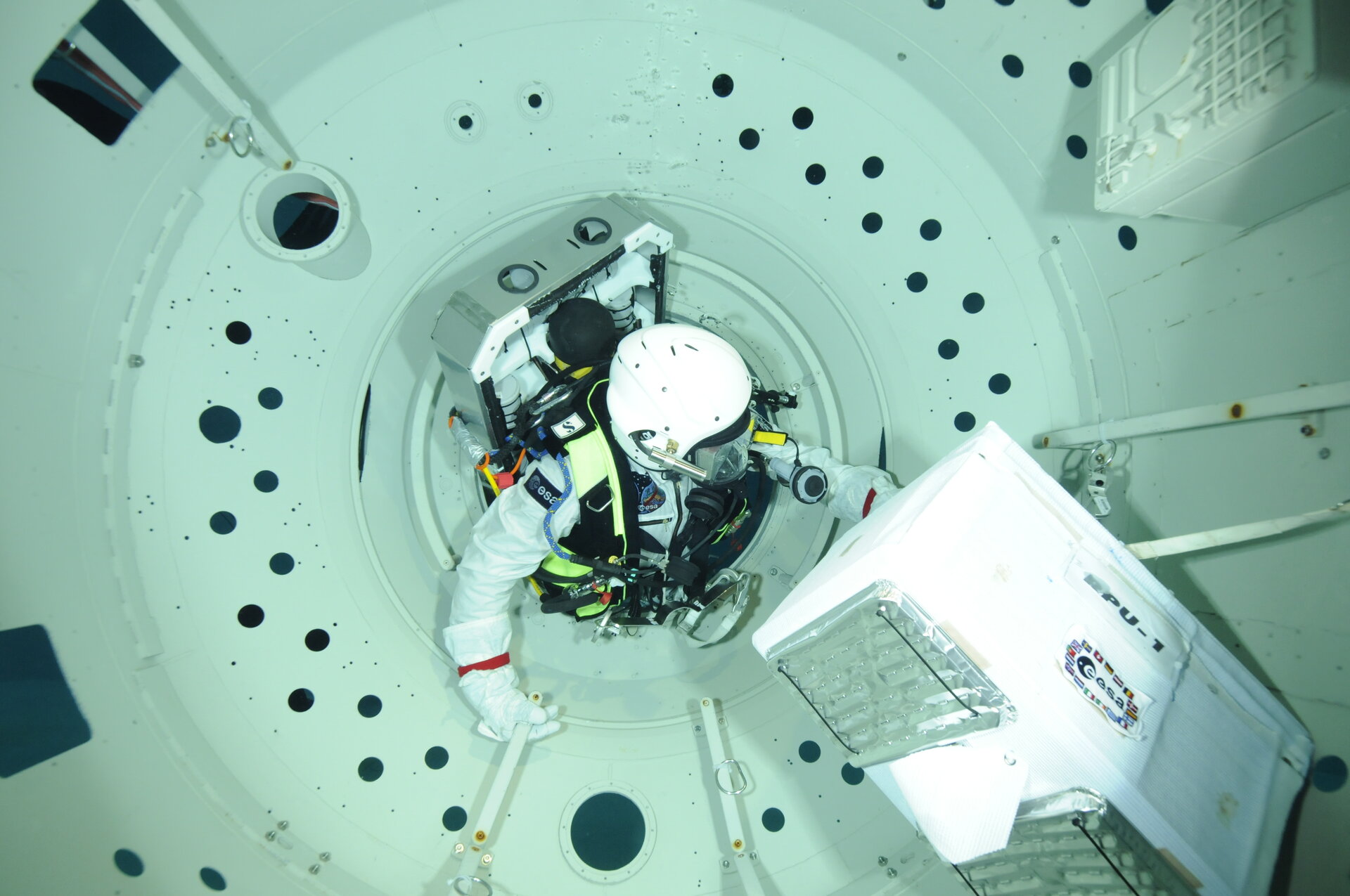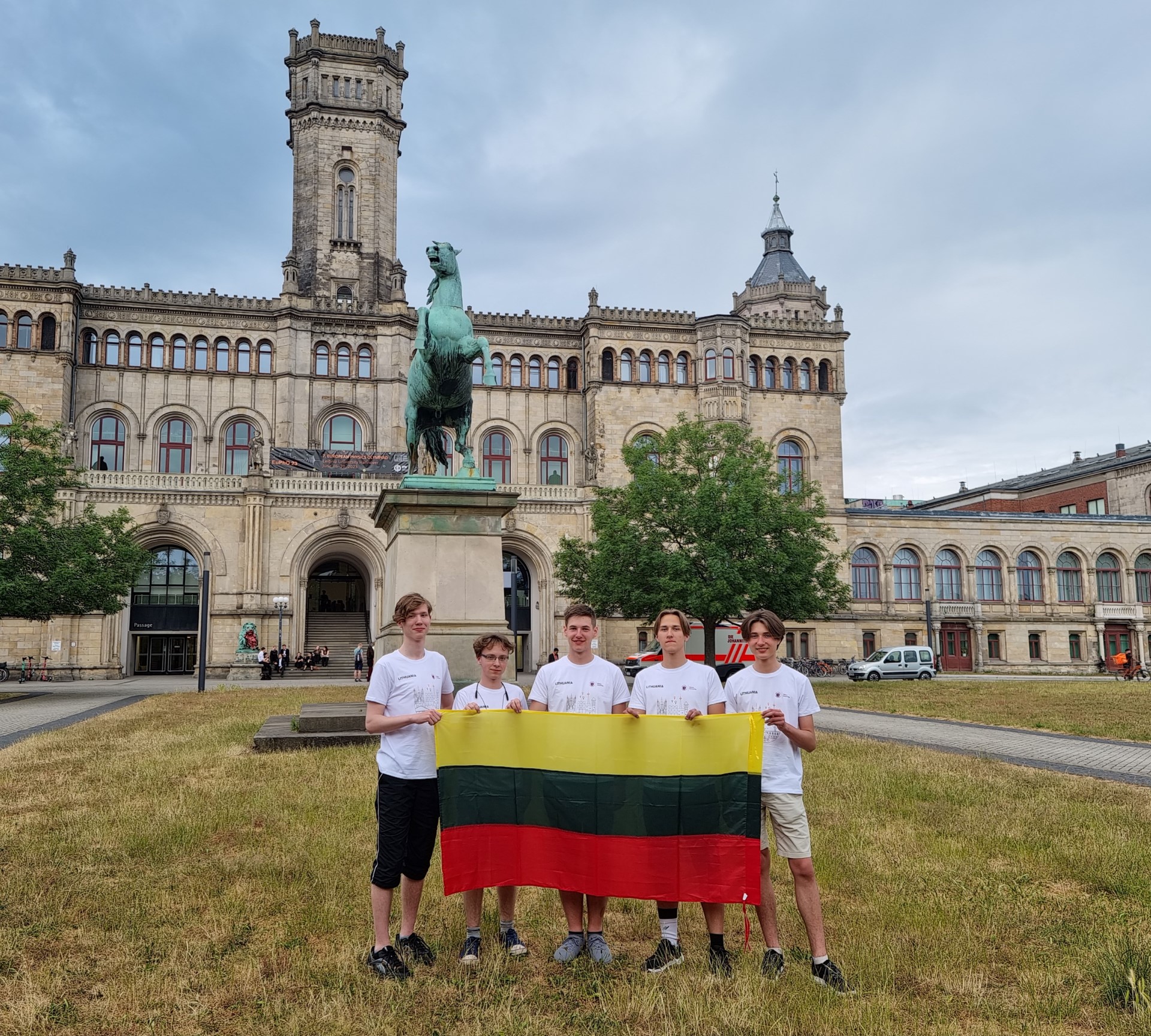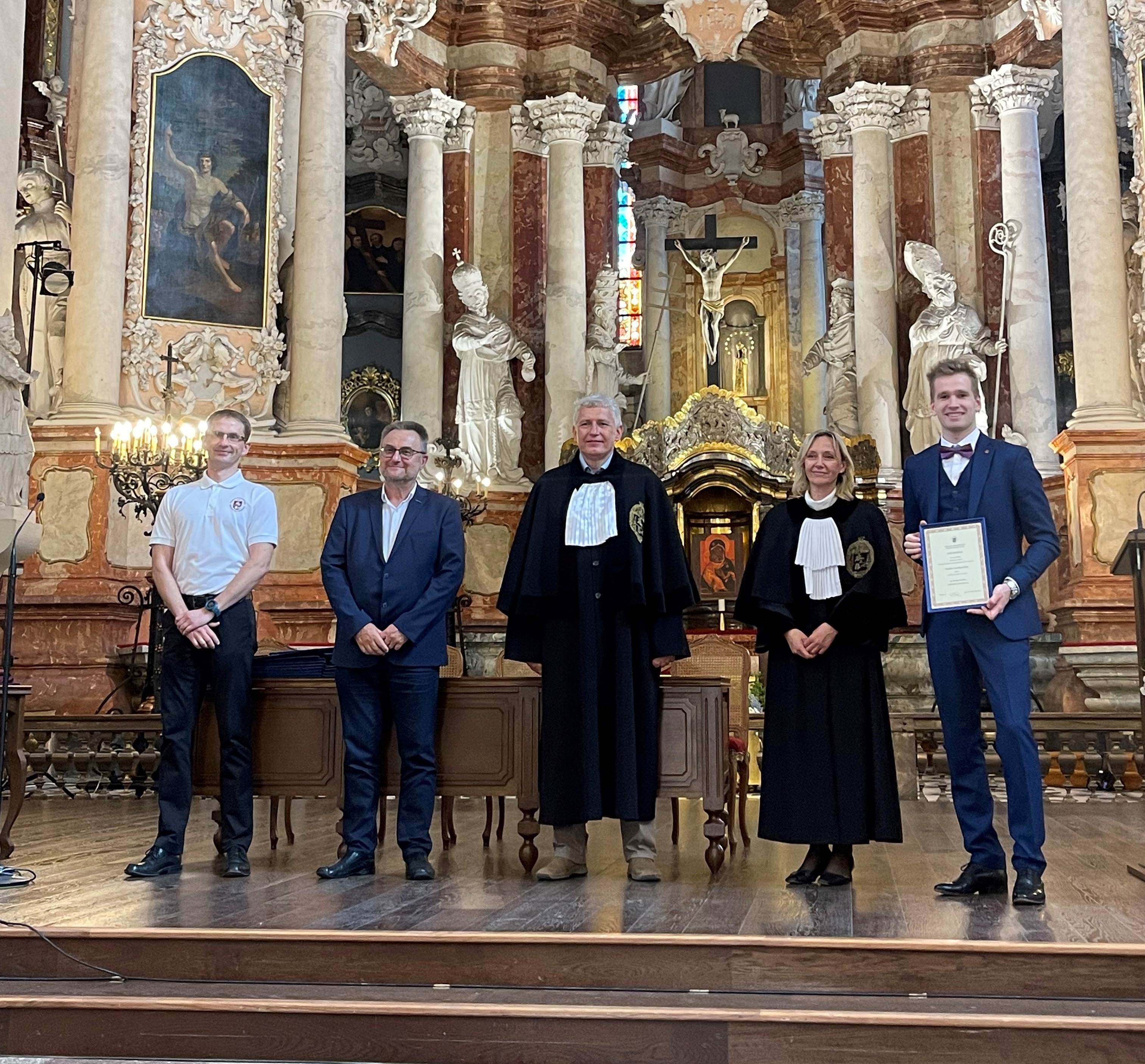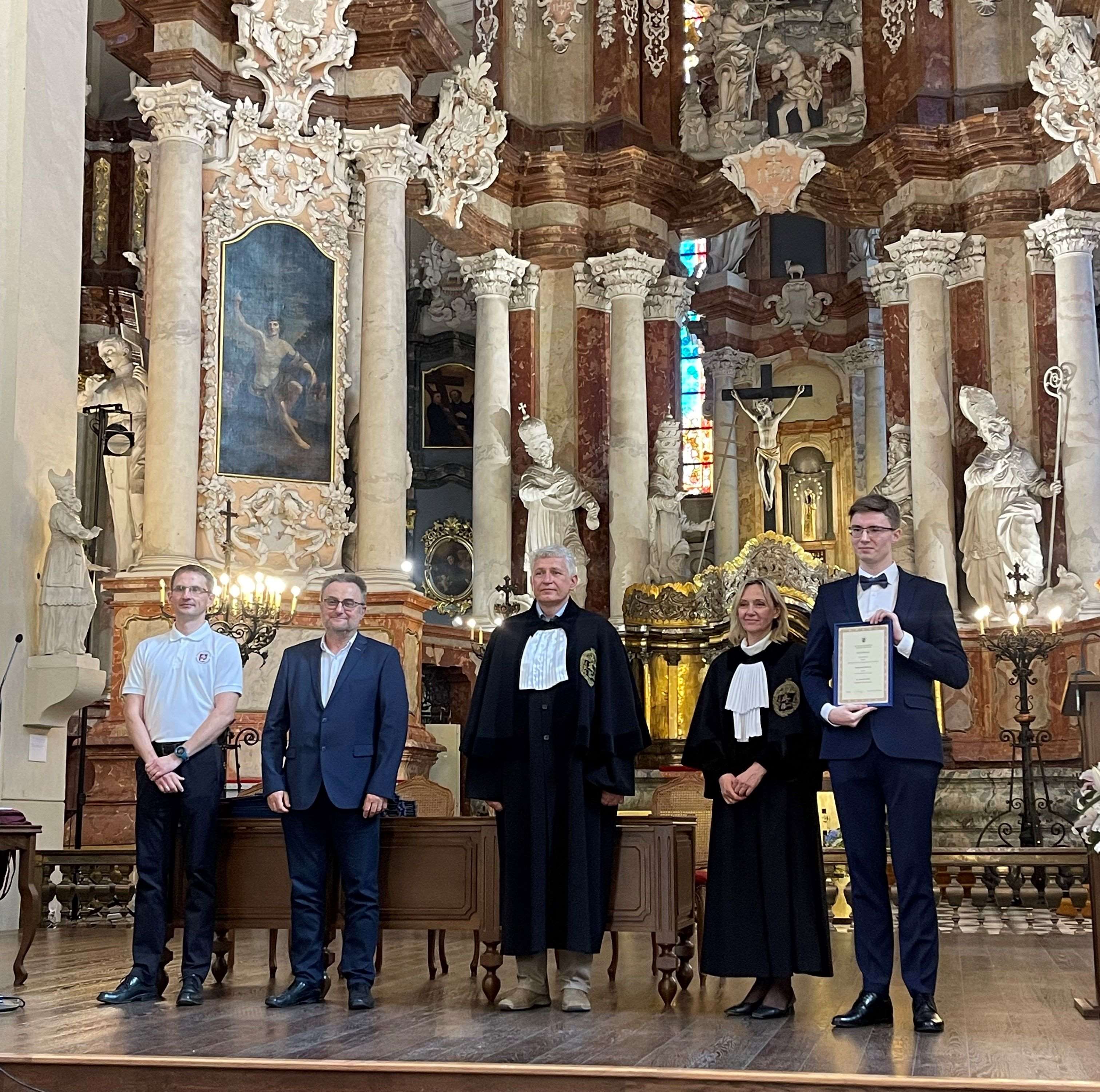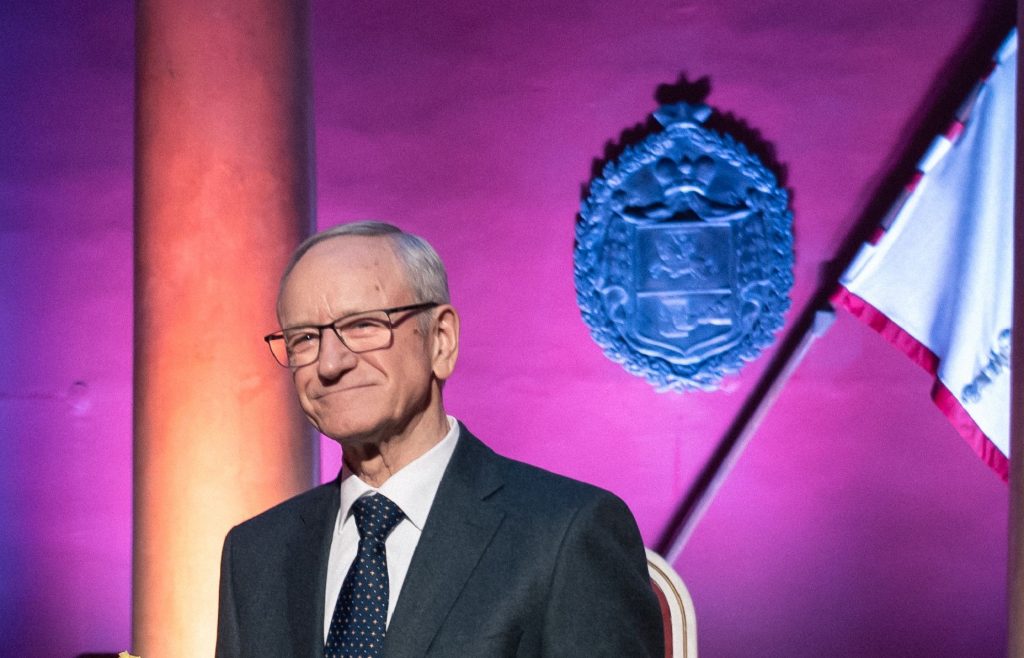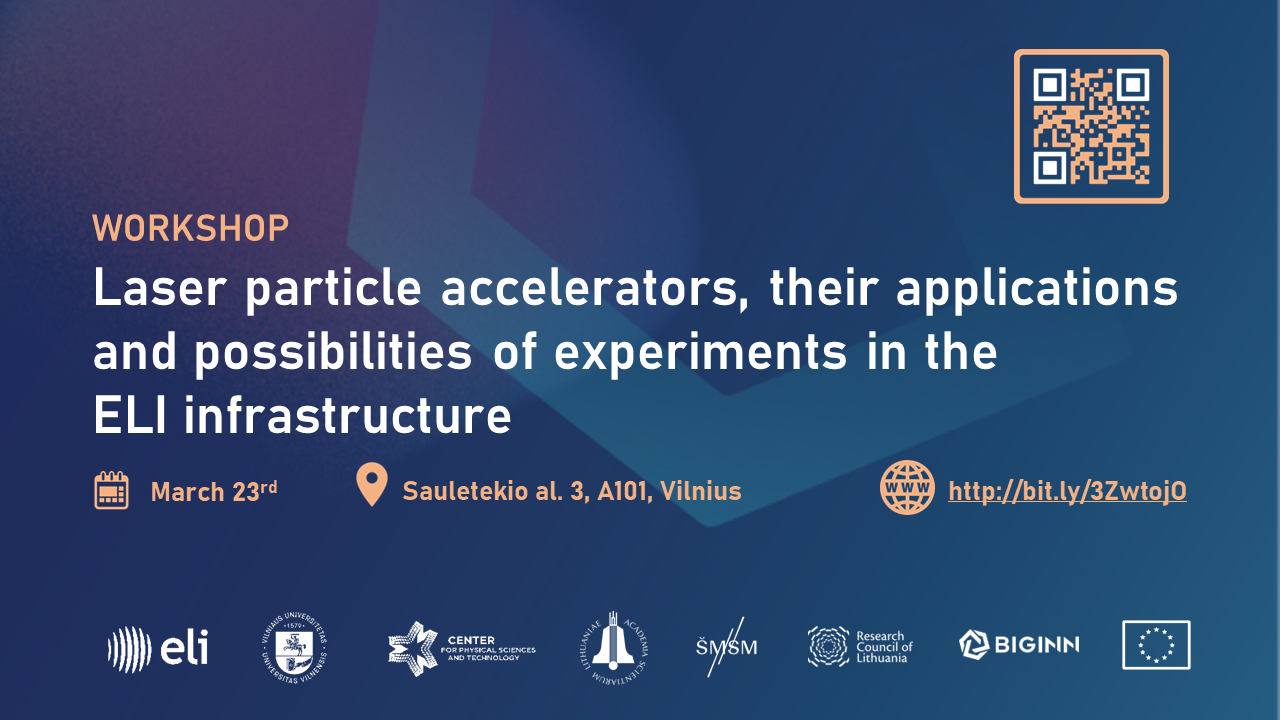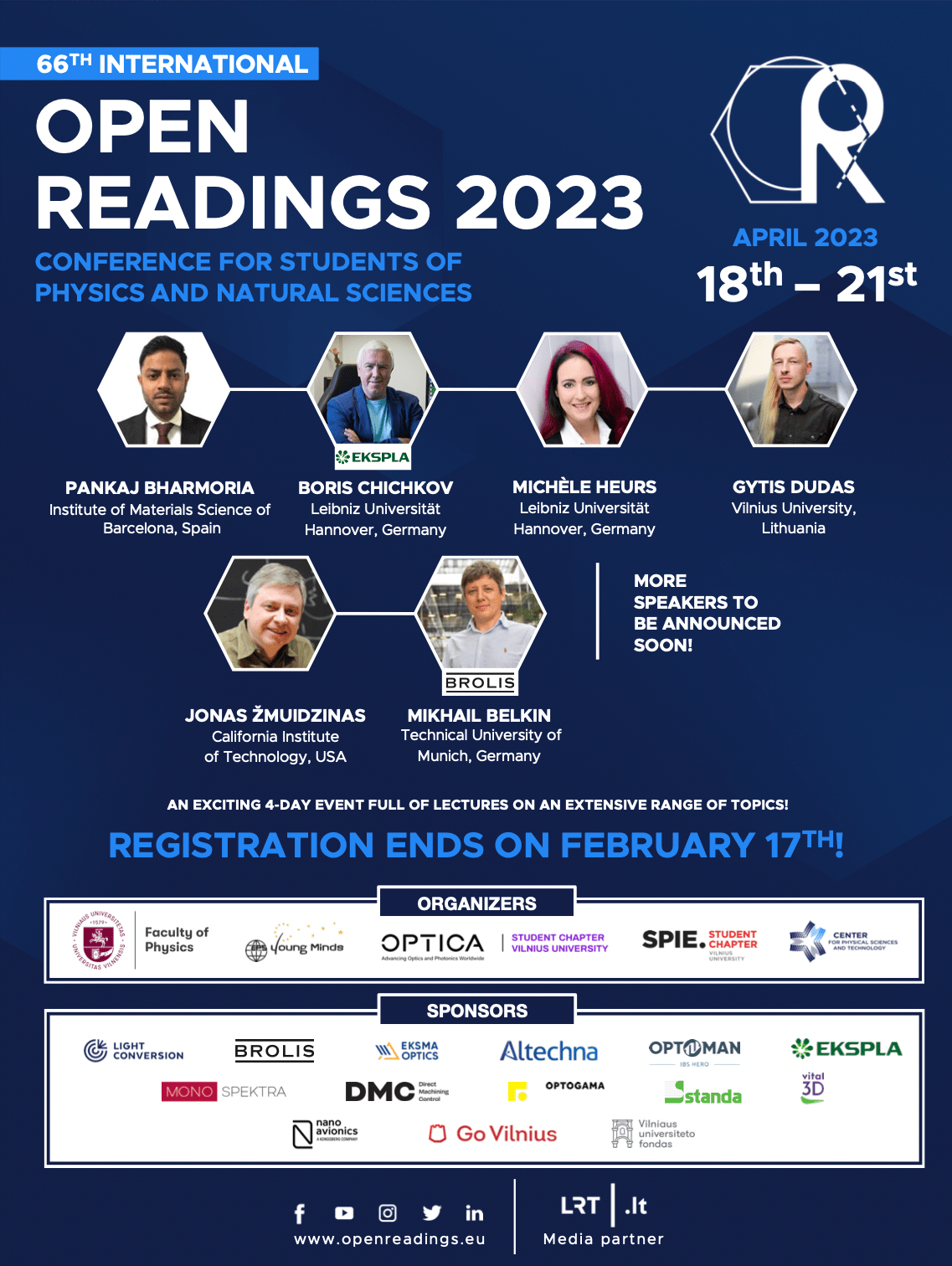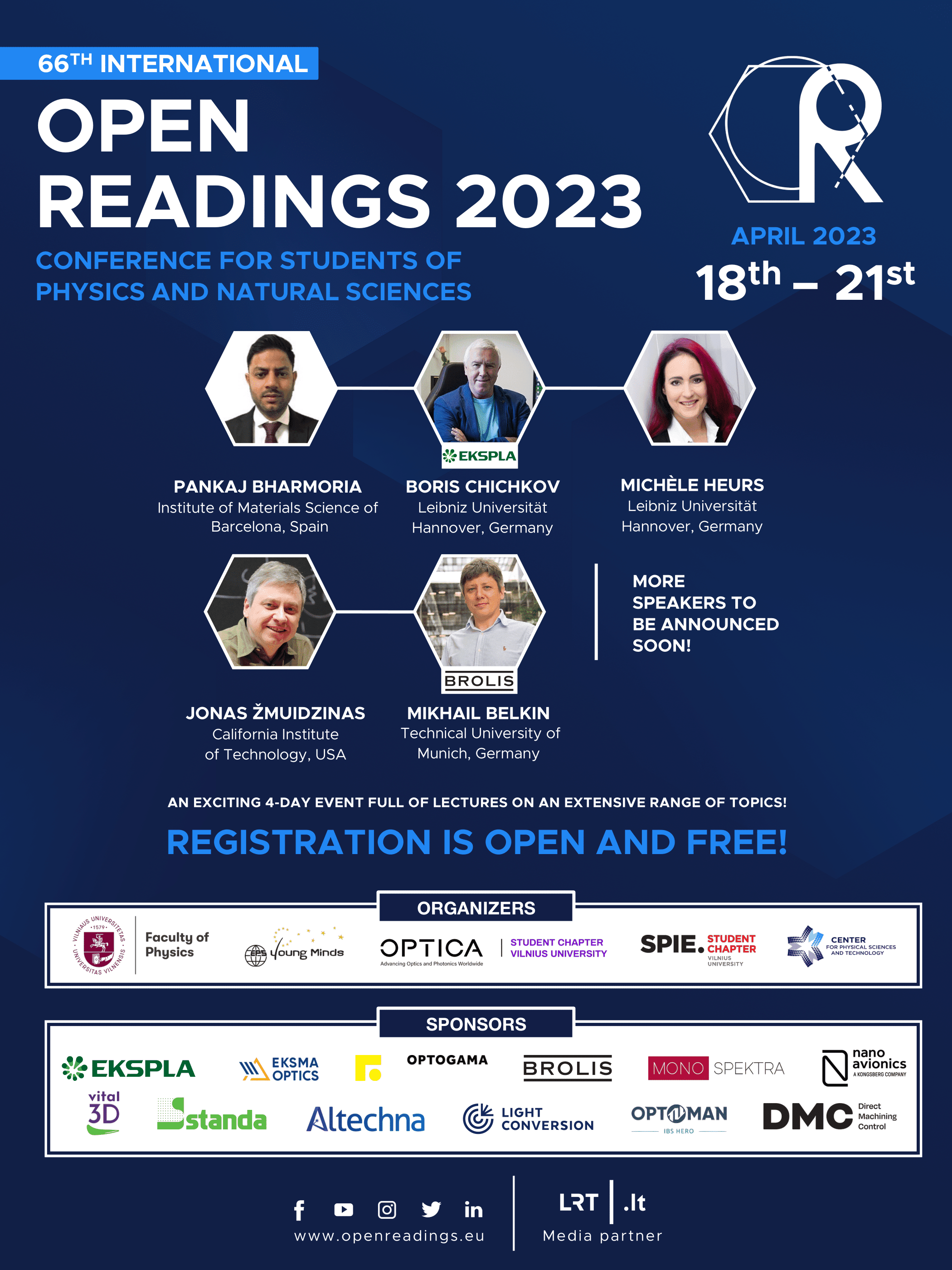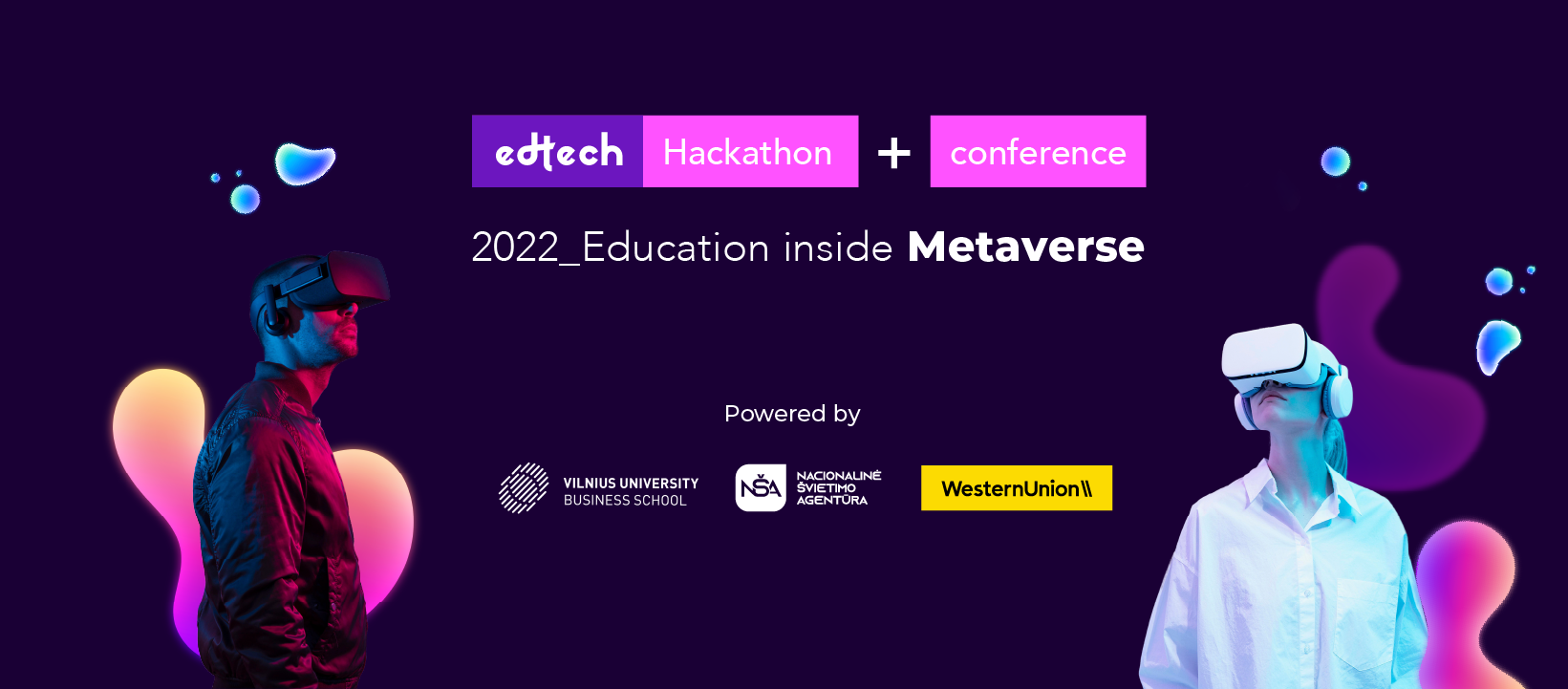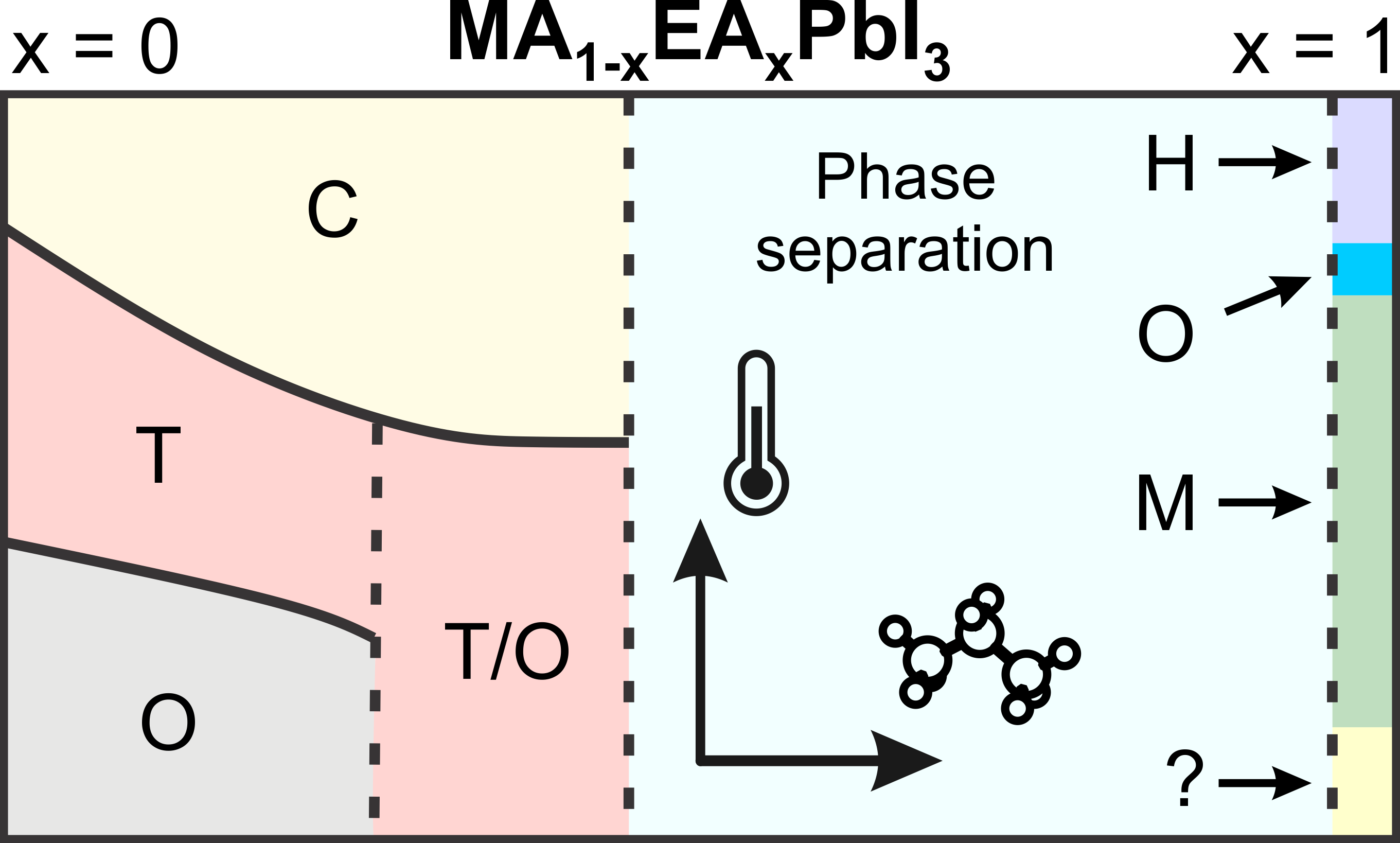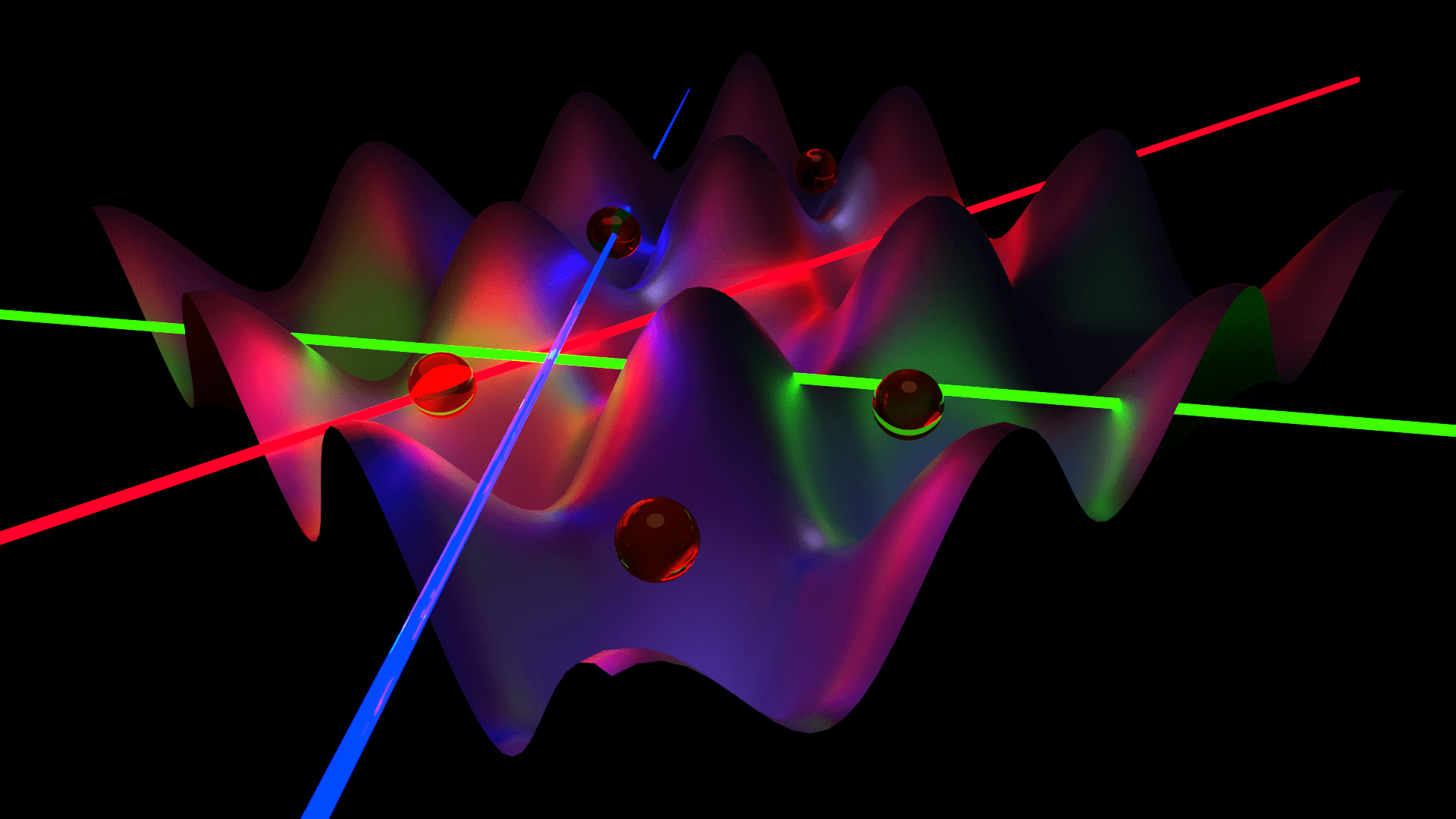Open Readings 2024. The 67th International Scientific Conference for Students of Physics and Natural Sciences
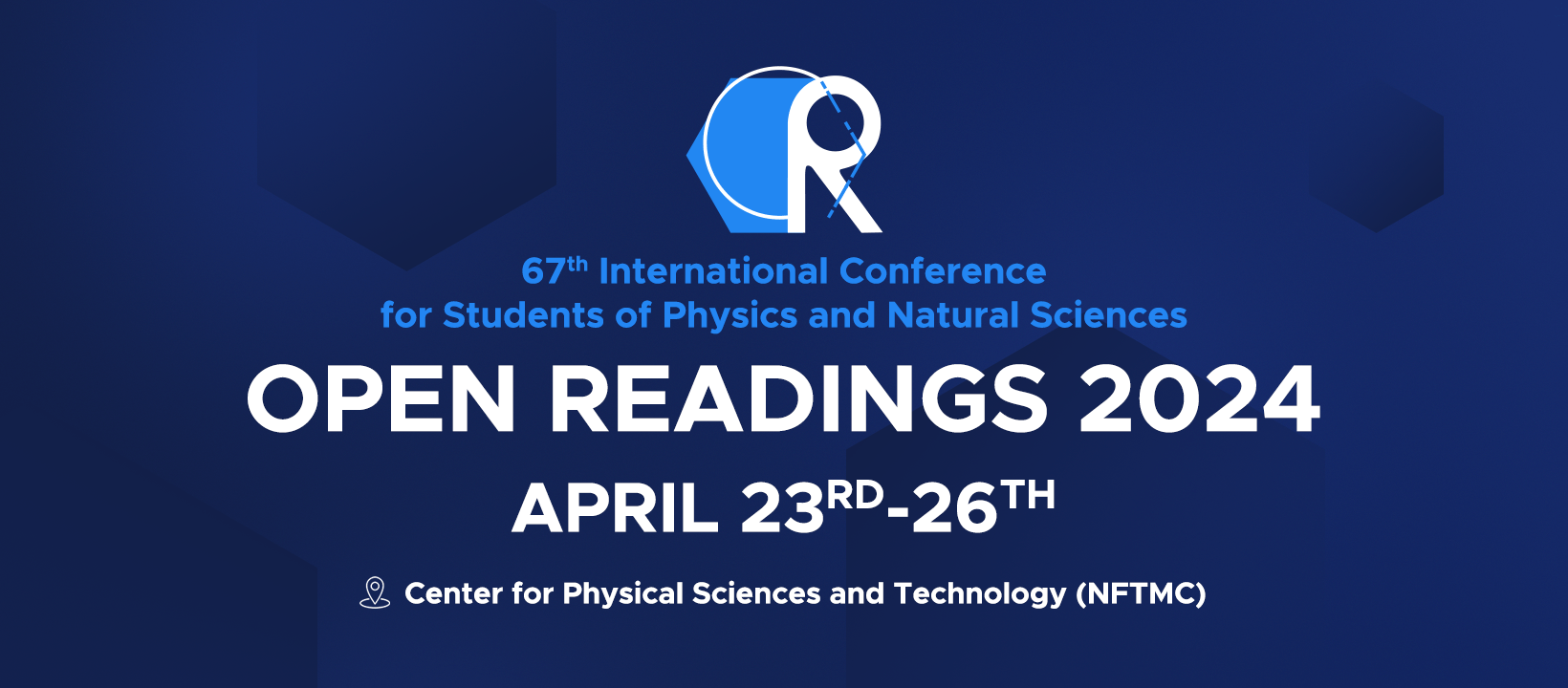
The 67th Open Readings 2024 International Conference of Physics and Natural Sciences for students will take place from the 23rd to the 26th of April.
The conference will welcome more than 350 participants various countries worldwide. Young researchers will present their conducted studies in their selected field from the nine proposed areas of natural sciences and technology. Conference participants and audience members will also have the opportunity to listen to seven invited speakers - world-renowned scientists. Invited speakers such as Prof. Dr. Jens Biegert from the Institute of Photonic Sciences in Spain and Prof. Dr. Ursula Keller from ETH Zurich, Switzerland, will share their expertise in the field of laser physics, while Prof. Dr. Chris Parkes, professor at the University of Manchester in the UK, will introduce the field of particle physics to the participants of the conference. Invited speakers from universities in the United States and Germany will also share their expertise in the fields of chemistry, astronomy and astrophysics, and genetics.
During the conference, the participants will have the opportunity to listen to a presentation by Dr Makeda Tekle-Smith, a junior professor of chemistry at Columbia University in the United States. Dr Tekle-Smith and her research group focus on exploring the fundamental principles of physical organic chemistry in the field of asymmetric synthesis. Their goal is to develop enantiopure materials, exploit the reactivity of unconventional chiral motifs, and advance the basic understanding of chiral structural effects. The results of the research are aimed to be applied in areas such as pharmaceutical development, biomaterial design and the development of sustainable synthesis methods.
The invited conference speaker, Dr. Andrew Pun, is an Associate Professor of Chemistry and Biochemistry at the University of California, San Diego. Dr. Andrew Pun and his interdisciplinary research group focus on the use of synthetic chemistry to manipulate and study the dynamics of photogenerated excitons. They aim to investigate hybrid semiconductor systems combining the best properties of organic and inorganic semiconductors for applications ranging from catalysis to photovoltaics. During his conference presentation, Dr Andrew Pun will deliver a talk on new applications of up-conversion in the exploration of novel annihilators in chemical synthesis.
During the conference, participants will have the opportunity to hear from the award-winning Prof. Dr. Charles Elachi, who was the eighth Director of the Jet Propulsion Laboratory and Vice President of Caltech from 2001 to 2016. Dr Elachi is currently a Professor of Electrical Engineering and Planetary Science at the California Institute of Technology. Prof. Elachi's research focuses on the use of space-based active microwave instruments to remotely probe planetary surfaces, including spheres and subsurface surfaces. His specialisation includes the analysis and interpretation of radar images of various planetary surfaces, with a primary focus on the Earth. During his presentation, Prof. Dr Charles Elachi will talk about space exploration and the prospects for the next 25 years in this field.
Participants will also have the opportunity to listen to Dr. Viktorija Glembockytė from the Ludwig and Maximilian University of Munich. Dr Glembockytė's research focuses on process studies and the construction of molecular devices in the nanoscale, using two different but complementary approaches: DNA origami and fluorescence imaging of single molecules. Viktorija is currently actively working on combining these two approaches to create modular and tunable nanosensors. During her conference presentation, Dr Viktorija Glembockytė will talk about nanoscale DNA tools that can be used to create light antennas and thus amplify a molecule's fluorescence signal by several hundred times, allowing the signal to be detected even with a smart phone camera.
The Open Readings 2024 conference will take place between the 23rd and 26th of April at the National Centre for Physical Sciences and Technology.
Open Readings 2024 is organised by the Faculty of Physics of Vilnius University, the National Centre for Physical Sciences and Technology, SPIE Student Chapter of Vilnius University, Optica Student Chapter of Vilnius University and the European Physical Society Young Minds Section of Vilnius.
More information about the conference:

